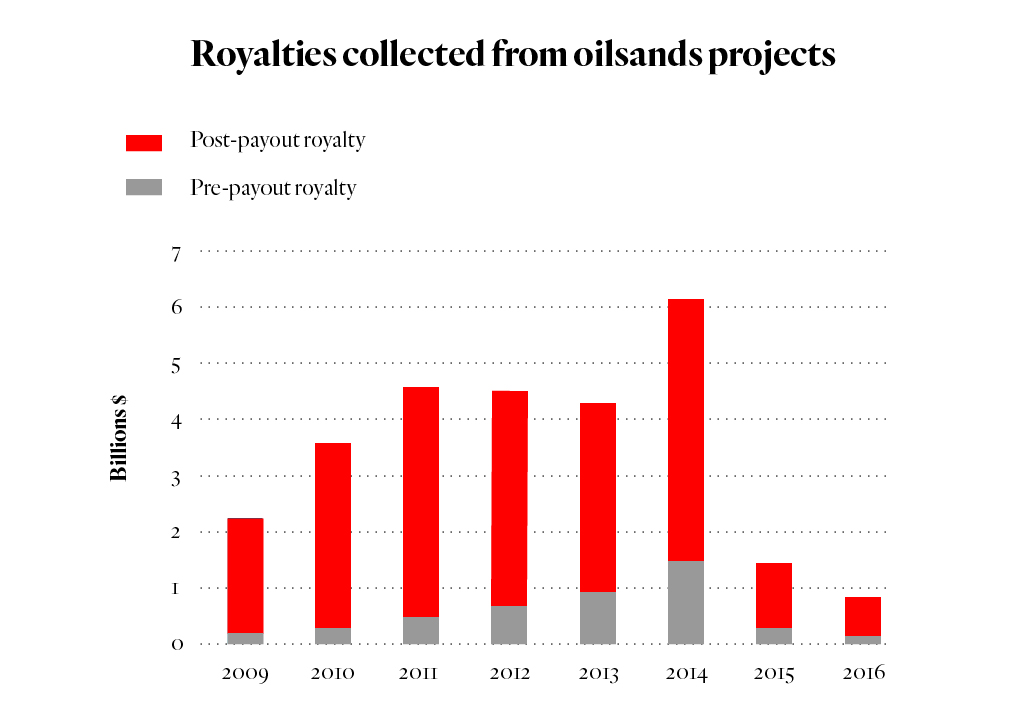
In a Nova Scotia research lab, the last hope for an ancient fish species
Racing against time, dwindling habitat and warming waters, scientists are trying to give this little-known...
United Conservative Party (UCP) leader Jason Kenney is very fond of one particular campaign slogan. It takes the form of a pointed question: “Are Albertans better off than four years ago?”
He asks it at rallies. He asks it in op-eds. He asks it at debates. He asks it to start policy announcements. He asks it so often that we started asking it ourselves.
To help answer the question, we took a look back at what was going on in Alberta four years ago, just before the province headed to the polls last time around.
And what better place to start than the Progressive Conservative (PC) party’s 2015 budget, tabled in March 2015, shortly before the NDP swept to power in a historic election in May — and ending the record-breaking 44-year Progressive Conservative hold on power in Alberta.
(In 2017, the UCP was formed as the result of a merger of the PC party with the Wildrose Party, a party further to the political right.)
So, where was Alberta at in 2015?
Four years ago, oil prices were tanking. The U.S. Energy Information Administration summarized the year with a definitive headline: “Crude oil prices started 2015 relatively low, ended the year lower.”
This had huge implications for the Alberta government, not least because royalties are tied to oil prices. Royalties represent a significant chunk of the province’s revenues.
According to a 2015 paper by University of Calgary economist Rob Kneebone, “fiscal year 2014-15 was a momentous one for the government as oil prices fell by half in the second half of the year.”
Kneebone pointed out that the province’s government — then led by Premier Jim Prentice — indicated in its March 2015 budget that “it expects resource revenues will fall from $2,100 per capita in 2014-15 to just $680 per capita in 2015-16.” That’s a 67 per cent decrease.
Revenues from oilsands royalties alone, which had been approaching $70 billion 2014, didn’t even reach $40 billion in 2015.

Royalties collected from the Alberta oilsands, 2009-2016. Source: Government of Alberta. Graphic: Carol Linnitt / The Narwhal
The “plunge in oil prices has had a dramatic impact on government revenues,” Progressive Conservative Minister of Finance Robin Campbell said in his 2015 budget address, noting a “revenue shortfall of approximately $7 billion is anticipated.”
“Today,” Campbell said, “we have everything but stability.”
By early 2015, Alberta’s long-standing royalties-revenue crutch had been kicked out from under us.
PCs proposed largest budget deficit in ‘modern Alberta history’ and tax hikes in 2015
As a result of the loss of royalty revenue, the province’s government was forecasting a $5-billion deficit — “the largest amount in modern Alberta history,” according to CBC.
The plan? Significant tax increases and a plan for gradual cuts to spending, both of which, according to Kneebone’s paper, were “explicitly intended to reduce the reliance on resource revenues [royalties].”
Among the measures planned in their 2015 proposed budget? Increase taxes: Eliminate the flat tax on income. Start charging Albertans a healthcare premium. Increase the fuel tax. Increase the liquor tax. Increase the tobacco tax. Increase the insurance premium tax. Reduce tax deductions on charitable giving.
And increase fees and fines: Increase traffic-violation fines. Increase vehicle fees. Increase land-title fees. Increase court-filing fees.
And . . . cut spending: 1,695 full-time equivalent healthcare positions. Hundreds of teacher layoffs. Larger class sizes. It went on and on.
It was, according to Campbell, an attempt to “repair the cracks in our fiscal foundation.”
In 2015, the Progressive Conservative government was famously, and ultimately unpopularly, ringing alarm bells about relying on “volatile energy royalties.”
“We have been lucky in recent years that resource revenues provided a bonus that allowed us to pay the bills,” Minister Campbell told Albertans in his budget address.
But, he added, that had to end eventually.
After 44 years of riding a resource-revenue roller coaster, the Progressive Conservatives, it seemed, had had enough.
The party put it this way in its 10-year strategic plan, announced in 2015: “Alberta has been coasting on revenues that have generally been strong but have always been unpredictable.”
“Without a clear vision for our province’s direction, there’s been no commitment to a stable financial plan. Without a stable plan, financial risks have mounted along the way.”
Albertans, it seems, did not like that message, and the Progressive Conservatives were ousted from power a little over a month after the budget was unveiled. The budget was never passed.
And here we are in 2019, talking again about how to get back to the top of the roller coaster.
If there’s one resounding call from Albertans this election season, it’s a simple one: “build that pipe!” Our collective hope, it seems, is to restore our former wealth by once again reaping rewards from the energy industry.
Yes, we seem to be saying, times are tough. But surely we can get back to where we once were.
So, are we better off than we were four years ago? Or is our thinking, at least, still in the exact same place?
Albertans head to the polls on April 16.
Get the inside scoop on The Narwhal’s environment and climate reporting by signing up for our free newsletter. On March 17, federal Conservative Leader Pierre Poilievre...
Continue reading
Racing against time, dwindling habitat and warming waters, scientists are trying to give this little-known...

From investigative reporting to stunning photography, we’ve been recognized with four 2024 CAJ Awards nods...

The Narwhal is expanding its reach on video platforms like YouTube and TikTok. First up?...
